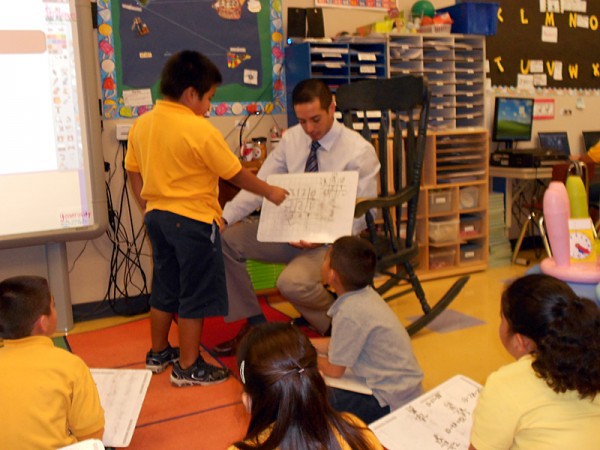Life can be hard for math teachers and tutors, who do their best to encourage students to learn math, but are not able to make them enthusiastic about arithmetic and geometry. The problem goes beyond what could be called a “bored with math” syndrome – how to motivate students, who often fail at tests, hate math or do not see any reason to learn how to solve math problems? Check our methods for keeping kids interested in math and apply them as often as possible.
Learning through discovering
If your math classes look like lectures on the math theory, your students will never be interested in the message you are trying to convey. You should do your best to engage students, turn them into active listeners and allow them to approach every math problem as an interesting challenge. How to achieve that? Treat every math problem as a quest, which is all about finding the correct solution and allow students to come up with their own ways of solving the problem.
Instead of showing your students the correct order of steps, which lead to a solution, let them come up with ideas and figure out the shortest path to the solution with a little help from your side. Allow your students to ask as many questions as they want and provide good context to every math problem, explaining how mathematicians have discovered the solution to the problem.
Introduce technology
Computers are commonly used in schools these days, but as it turns out, there is a lot more you can do to utilize modern technologies in your math classes. The internet is full of excellent math puzzles, games and tutorials and a skillful math teacher should not have a problem with incorporating these puzzles into everyday classes or homework. Encourage your students to use the internet when they are studying math and show them how they can do it.
Make the homework more fun by awarding your students for winning math games online. And it is not all about entertainment – computers are used by professionals, who represent different fields of expertise and the earlier your students learn how they can use computers not just for fun, but also for studying, the more ready they will be for the challenges, which lie ahead of them.
Make it more practical
Not all students are capable of understanding abstract concepts and operations, so unless you find a way to bring it all down to concrete objects, they will struggle with solving math problems. Always look for good examples to illustrate math theorems. It is even better if you use funny examples, because children tend to remember funny facts better than serious facts.
To make the progression from concrete to abstract easier for your students, apply the techniques used in Singapore Math, such as the Bar Modeling – an excellent method used to solve word problems.
Work with math tools and geometric shapes to show your students the relations between math theorems and real life objects. Last, but not least, explain how the rules of math are applied to create everyday objects and encourage your students to find other possible applications.
Marta Gromadzka is a writer and editor with a wide variety of experience, including writing for websites internationally and editing books on many different subjects and in a variety of formats.
